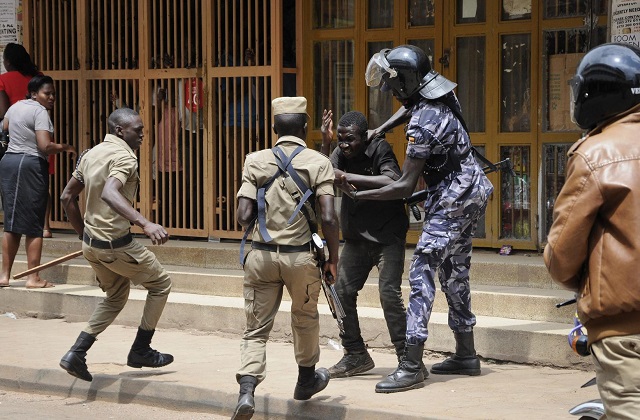
Kampala, Uganda | THE INDEPENDENT | The International Center for Transitional Justice-ICTJ has urged the government to implement the recommendation of the Human Rights Council’s Universal Periodic Review.
“The Universal Periodic Review serves as a rare occasion for the government to reflect on its human rights record and its obligations under international law as assessed by peers and members of the Human Rights Council. The process presents an opportunity to spotlight the human rights situation in the country and recommend actions that the government of Uganda should take to fulfil its human rights obligations.
Uganda’s human rights record is due for one such examination on January 27, by the UN Human Rights Council’s Universal Periodic Review (UPR) Working Group. But Sarah Kihika Kasande, ICTJ’s Country Director to Uganda says that ever since a similar appraisal took place in 2016, none of the recommendations that Uganda accepted has ever been acted upon.
In the last review, the government accepted over 200 recommendations, including those related to delivering redress to victims of mass atrocities, combating impunity, and dealing with sexual and gender-based violence. The government also agreed to adopt the National Transitional Justice Policy and enact the necessary legislation to help fulfil victims’ rights to truth, justice, and reparations.
The 2016 review came on the heels of the conflict in Kasese district that pitied the government against the Obusingwa Bwa Rwenzururu. In the conflict, over 150 people were killed and many others were arrested for years without charge. In their joint report to the Human Rights Council, human rights organizations in Uganda want the government to conduct an independent and transparent investigation into the Kasese killings and enforced disappearances and prosecute the perpetrators without delay and according to international due process standards.
“In the 2016 UPR, the Human Rights Council called on the government to accede to The International Convention for the Protection of All Persons from Enforced Disappearance. Enforced disappearance has been the main feature of Uganda’s political instability and civil strife.
It is estimated that over 80,000 persons were abducted during the armed conflicts in Northern Uganda and the Rwenzori region. While large numbers of these abductees have returned, 10,000 to 15,000 persons abducted by the Lord’s Resistance Army, many of whom were children at the time, are still missing years after the end of the conflict,” the statement reads in part.
Just like in 2016, todays review comes at a time when the country is still riling from a violent election that left hundreds of people dead. “Political activists were unlawfully detained, forcibly disappeared, and extra-judicially killed during the 2021 general elections. State agents abducted and tortured dozens of opposition supporters.
“The UPR takes place against the backdrop of rising cases of torture, arbitrary detention, enforced disappearance; increased restrictions on civic space; and a failure to redress past atrocities. An absence of accountability has moreover created a culture of impunity in the country that undermines the rule of law and human rights,” a statement by the-ICTJ reads.
This time, the Ugandan government must take concrete steps to implement these recommendations if it is to finally address deeply entrenched human rights concerns and fulfil its international commitments,” Kasande said.
She also calls on the government to establish an independent commission of inquiry to investigate all cases of enforced disappearance and provide redress to the victims and urges the government to create an inclusive database of those still missing and locate and recover the remains of the missing,” the statement adds.
Early last year, the National Unity Platform president Robert Kyagulanyi Ssentamu petitioned the UN Human Rights office in Kampala complaining about human rights violations in Uganda.
*****
URN
 The Independent Uganda: You get the Truth we Pay the Price
The Independent Uganda: You get the Truth we Pay the Price





